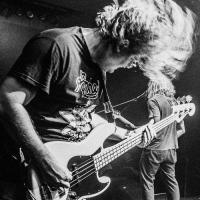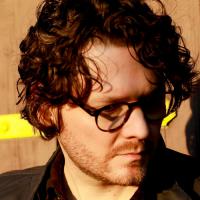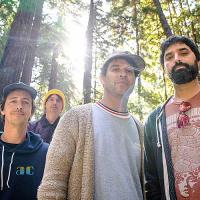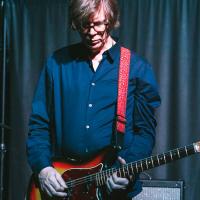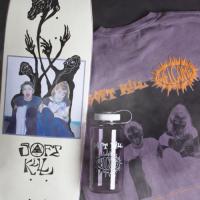Run The Jewels Interview
7/15/2020
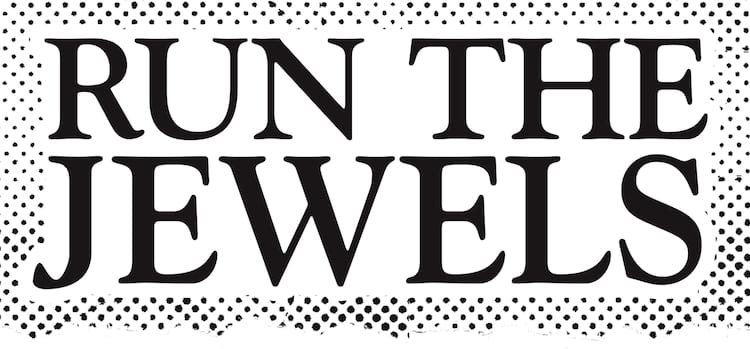
I HAVE KNOWN El-P for years from hanging out at the bar Max Fish in NYC. I was lucky to see RTJ grow, similar to how I’ve watched so many skaters move up the ranks from flow to pro. I watched them play rooms with a 300-person capacity to selling out 6,000 seat stadiums. Killer Mike and El-P are family—my brother and I even opened for them in our home state of Colorado. Watching their journey has been amazing and I was very stoked to talk with them about skateboarding, how the group started and their new record. —Atiba Jefferson
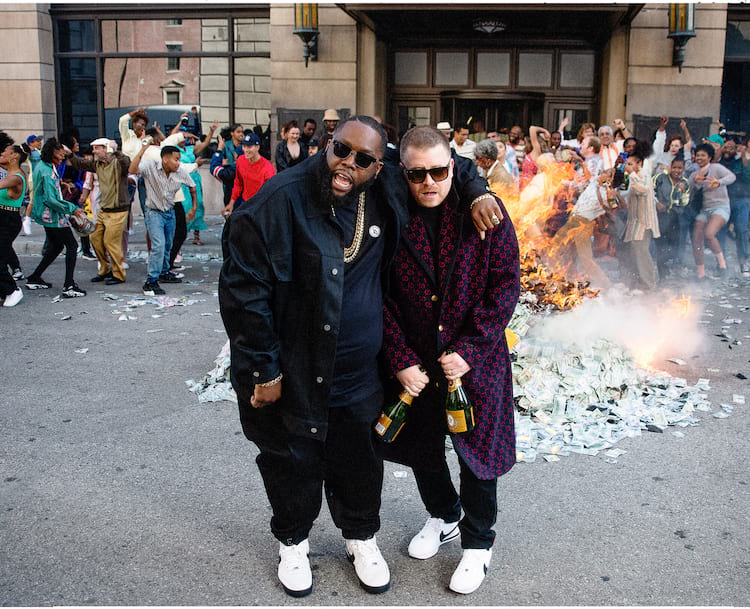 All photos by Atiba
All photos by Atiba
This interview was featured in the August 2020 issue and conducted months ago. Therefore critical current events are not addressed.
When did you guys start RTJ and how did it come together?
Killer Mike: El-P and me were put together by a guy named Jason DeMarco, who is a TV executive but also music lover and quietly a fucking genius. He thought El and I might make great music together and he wanted me to make my version of AmeriKKKa’s Most Wanted, so he put El and I in the studio. I was supposed to work with two or three other producers, who are amazing dudes and friends. But I got in the studio with El-P first. We worked for three hours, I called Jason and said he has to do the whole album. I was like, “I found my boss squad; this is amazing.” We pestered El for 90 days. We fucking bothered the shit out of him, begged him, aggravated him as he was working on his own solo album. As he was working on Cancer 4 Cure, he produced my classic record R.A.P. Music, which was released eight years ago and we became friends. After both of our albums dropped, we toured together. El came home and said, “I got to give.” I believe it may have been Fat Possum, A Mixtape. I said, “I want to do it with you. I’m going to fly to New York.” We went and lived in the woods together. We did Run The Jewels, five, six records, took them to Taco and Jason. Taco and Jason hit us back and said, “If you guys don’t do this as an album, you’re crazy.” We toured the album, opened for one another. El-P and Killer Mike opened for Run The Jewels. Then we’d come back out on stage as Run The Jewels, and for whatever reason, people went fucking nuts. The shows received great responses. And after that, we were too smart not to be stupid. Well, we were smart enough not to do something stupid.
 All photos by Atiba
All photos by AtibaThis interview was featured in the August 2020 issue and conducted months ago. Therefore critical current events are not addressed.
When did you guys start RTJ and how did it come together?
Killer Mike: El-P and me were put together by a guy named Jason DeMarco, who is a TV executive but also music lover and quietly a fucking genius. He thought El and I might make great music together and he wanted me to make my version of AmeriKKKa’s Most Wanted, so he put El and I in the studio. I was supposed to work with two or three other producers, who are amazing dudes and friends. But I got in the studio with El-P first. We worked for three hours, I called Jason and said he has to do the whole album. I was like, “I found my boss squad; this is amazing.” We pestered El for 90 days. We fucking bothered the shit out of him, begged him, aggravated him as he was working on his own solo album. As he was working on Cancer 4 Cure, he produced my classic record R.A.P. Music, which was released eight years ago and we became friends. After both of our albums dropped, we toured together. El came home and said, “I got to give.” I believe it may have been Fat Possum, A Mixtape. I said, “I want to do it with you. I’m going to fly to New York.” We went and lived in the woods together. We did Run The Jewels, five, six records, took them to Taco and Jason. Taco and Jason hit us back and said, “If you guys don’t do this as an album, you’re crazy.” We toured the album, opened for one another. El-P and Killer Mike opened for Run The Jewels. Then we’d come back out on stage as Run The Jewels, and for whatever reason, people went fucking nuts. The shows received great responses. And after that, we were too smart not to be stupid. Well, we were smart enough not to do something stupid.
El-P: Yo, that’s the new Run The Jewels motto: “Too smart not to be stupid.”
K: Yeah. Definitely. But we were smart enough not to be stupid. And we had fun making music together. And who doesn’t fucking love touring with their friends, performing for dope parties? And it has grown into something exponentially bigger and we’re both incredibly grateful for it.
Did you guys start RTJ thinking it was a project more than a group, or did you always know this was going to be a group?
E: No, we didn’t know. Like he said, we didn’t even think it was going to be an album until halfway through. It was really just that we had gotten off tour, and me and Taco went up to the woods. I was like, “Yo, I’m going up.” And Mike was like, “What are you doing?” I was like, “Well, I don’t know.” I didn’t know what the next thing was going to be. We both just did our first solo albums in a while. It was a success. It had kind of brought us out of like—neither of us really knew what our futures were. And then we did these records and we toured together and we both kind of felt like, All right, well, we don’t really know what the future holds, but for the first time, in a long time, I feel really excited again to do music. And a big part of that was the fact that we had so much fun touring together. And when Mike asked me what I was doing, I was like, “Well, I don’t know. I think I might make a mixtape or some shit. Put it out for free. I’m going to go up with Taco. We’re going to go to the fucking woods and we’re going to take drugs and make music.” And Mike was like, “I’m there. I’ll be there in two days.” And that was it, man. I was like, “All right, fair. Come through.” And you really just showed, man. We just got drunk, smoked weed, hung out, had fun. And every beat that I had, Mike was just like, “I got something; I got something.” So we just basically went from me making a mixtape that I had no real idea of what it was going to be, to us having five or six songs together, to us being like, Why don’t we just keep going? Because it was happening that quickly; it was happening that fast. So no, we didn’t have any idea that it was going to be a group. We knew by the end of the record that it was going to be an album, but we didn’t know that it was going to define our lives and our careers, you know?
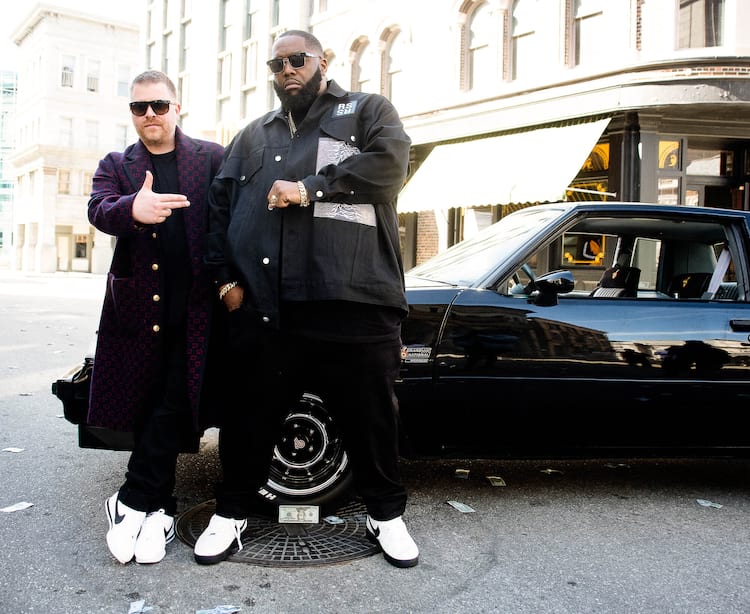
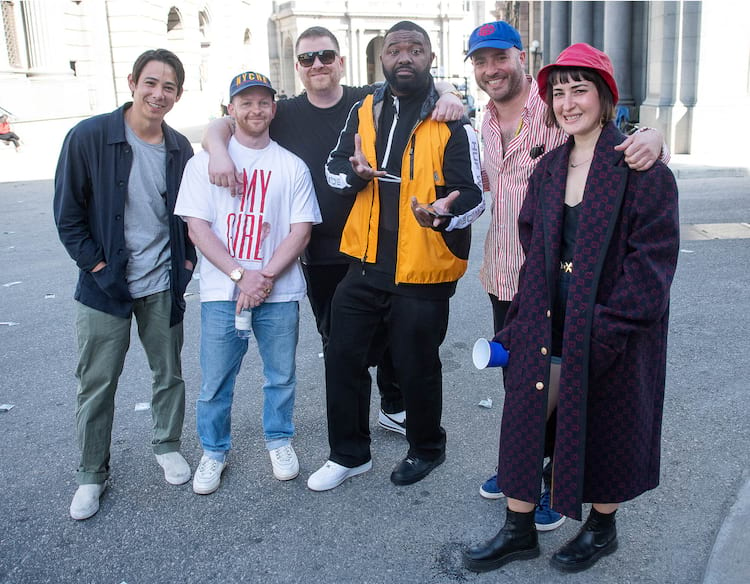
What was different about making this new record as opposed to earlier ones?
E: The first one was much different. The first one was just me and Mike, basically for the most part, for two weeks in one studio. So most of the jams were done in some form or another in about two to three weeks. This one was different, for sure. We’re different; we’re in different places. So me and Mike just kind of decided like, Yo, let’s just pick some iconic spots to meet up—neutral territory—and just fucking find the time, just take our time, come in and get busy when we can. So we fucked with Shangri-La; we fucked with Electric Lady. We just wanted it to be a vibe whenever it was, but it’s not the same exact process. Except when we do get in a room together, and then it’s all the same process. But yeah, we just kind of decided it would be cool to float around a bit, get a different feel, just see what else would happen if we were in a different environment, which I enjoy.

What are you most proud of on this record, as far as it being different from what you’ve done before?
K: For me, man, what I really love about this record is that all of the Run The Jewels records have a feeling in them, not a sound, but a feeling, that is one of nostalgic hip-hop, right? Whether it’s aggression on something or grime in this one, it’ll make you feel like, “Man, I feel that.” So if you’re young, you might’ve felt it for the first time. And it’s amazing. If you’re older, it might be a nostalgia-type thing. But the sound is giving it something that is grand in hip-hop. And I think with this one what it was is the bop. You know, it’s the same if there’s certain rock chords. We have a bop and a rock in this record that’s, to me, just infectious. And I love that. We’re tighter, faster, cleaner, meaner in terms of the rhymes and the way the songs flow. We took the time to master each record. And what I mean by that is, we went back. Some records were done. If you look at “Just Money,” it’s like—that verse, I went back and forth for months. Like, Man, it isn’t that I don’t like the verse. I know I’m doing what I’m supposed to do. I know it’s swagging. I know what I’m saying, what I want to say. I know I’m using a pattern. But it literally was a line or two that I had to change and add in ad-libs, and I was like, Oh, shit is perfect. But I mowed over it until it was right. I didn’t rush it.
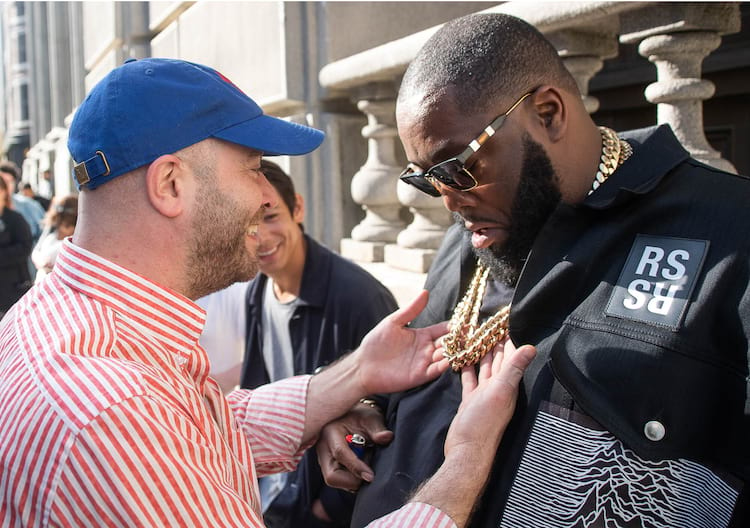

While we’re talking about producers, I want to bring up Torbitt Schwartz (aka Taco) and Wilder Zoby and what they brought to the table. What was their role in this whole thing?
E: Taco and Wilder are Run The Jewels family and, for me, they’re brothers. They’re very important humans in my life. I used to do all these records just by myself, alone, front to back. I would have no other voices. It would just be me losing my mind, maniacally trying to do this shit. And what would happen was that I would get these records done and they would feel good when they were done, but the process of it was really tough sometimes. And when I started making music after Cancer 4 Cure, which Taco kind of had a hand in—I sort of brought him in a little bit and I’m so close with Wilder and Taco in friendship that I started to let them in a little bit. And the Run The Jewels thing really was the set off of that and it became this family thing. It was such a blessing to me to be able to have my friends share the obsession and a little bit of the responsibility for caring that this music gets done. And when you do it on your own, it can be tough. And it was a big part of Run The Jewels being fun. Run The Jewels was when I finally let go and I was like, You know what? Hey, you guys, roll with me. Let’s do this. I want to be able to turn to my friends and be like, “Is this dope?” I want my friends to be able to be like, “What about this?” So it really was a breakthrough in being able to let go of some of the control in the sense that I used to just be like, Nah, I do this 100 percent and anybody else even comments on it doesn’t even fucking matter. But when you bring friends in, when you have a family of people who are bringing energy to it, it just makes it that much more fun. So Run The Jewels is really like an extended family at this point, you know? If Taco and Wilder are me and Mike’s brothers, then we got cousins, too. You know, we got dudes like Boots and we got dudes like Dave Sitek. And we have sisters, too. And we have our other friends, you know, Zack de la Rocha, Trackstar, of course. So it’s really fun. It’s all about the fact that me and Mike maintain Run The Jewels as a fun thing between family members. And it’s something that we all, at the end of the day, really take ownership of. So Taco and Wilder are huge, important parts of all of this and I’m so grateful that we’ve got the quality level of humans around us who care about us. Me and Mike are intense people, so we do need other people to break that up a little bit, I think. It’s very good to have, you know?

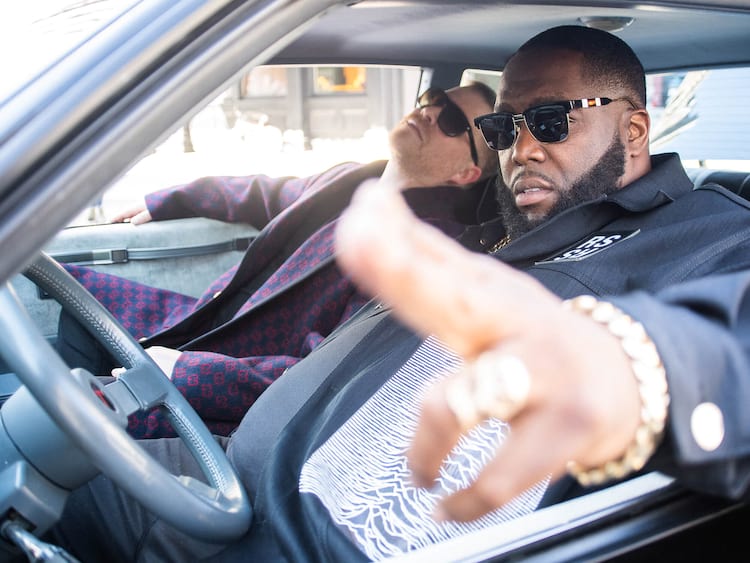
Did you guys start RTJ thinking it was a project more than a group, or did you always know this was going to be a group?
E: No, we didn’t know. Like he said, we didn’t even think it was going to be an album until halfway through. It was really just that we had gotten off tour, and me and Taco went up to the woods. I was like, “Yo, I’m going up.” And Mike was like, “What are you doing?” I was like, “Well, I don’t know.” I didn’t know what the next thing was going to be. We both just did our first solo albums in a while. It was a success. It had kind of brought us out of like—neither of us really knew what our futures were. And then we did these records and we toured together and we both kind of felt like, All right, well, we don’t really know what the future holds, but for the first time, in a long time, I feel really excited again to do music. And a big part of that was the fact that we had so much fun touring together. And when Mike asked me what I was doing, I was like, “Well, I don’t know. I think I might make a mixtape or some shit. Put it out for free. I’m going to go up with Taco. We’re going to go to the fucking woods and we’re going to take drugs and make music.” And Mike was like, “I’m there. I’ll be there in two days.” And that was it, man. I was like, “All right, fair. Come through.” And you really just showed, man. We just got drunk, smoked weed, hung out, had fun. And every beat that I had, Mike was just like, “I got something; I got something.” So we just basically went from me making a mixtape that I had no real idea of what it was going to be, to us having five or six songs together, to us being like, Why don’t we just keep going? Because it was happening that quickly; it was happening that fast. So no, we didn’t have any idea that it was going to be a group. We knew by the end of the record that it was going to be an album, but we didn’t know that it was going to define our lives and our careers, you know?


Sean Malto, Despot, El-P, Greg Nice, Wilder Zoby, Emily Panic
What was different about making this new record as opposed to earlier ones?
E: The first one was much different. The first one was just me and Mike, basically for the most part, for two weeks in one studio. So most of the jams were done in some form or another in about two to three weeks. This one was different, for sure. We’re different; we’re in different places. So me and Mike just kind of decided like, Yo, let’s just pick some iconic spots to meet up—neutral territory—and just fucking find the time, just take our time, come in and get busy when we can. So we fucked with Shangri-La; we fucked with Electric Lady. We just wanted it to be a vibe whenever it was, but it’s not the same exact process. Except when we do get in a room together, and then it’s all the same process. But yeah, we just kind of decided it would be cool to float around a bit, get a different feel, just see what else would happen if we were in a different environment, which I enjoy.

What are you most proud of on this record, as far as it being different from what you’ve done before?
K: For me, man, what I really love about this record is that all of the Run The Jewels records have a feeling in them, not a sound, but a feeling, that is one of nostalgic hip-hop, right? Whether it’s aggression on something or grime in this one, it’ll make you feel like, “Man, I feel that.” So if you’re young, you might’ve felt it for the first time. And it’s amazing. If you’re older, it might be a nostalgia-type thing. But the sound is giving it something that is grand in hip-hop. And I think with this one what it was is the bop. You know, it’s the same if there’s certain rock chords. We have a bop and a rock in this record that’s, to me, just infectious. And I love that. We’re tighter, faster, cleaner, meaner in terms of the rhymes and the way the songs flow. We took the time to master each record. And what I mean by that is, we went back. Some records were done. If you look at “Just Money,” it’s like—that verse, I went back and forth for months. Like, Man, it isn’t that I don’t like the verse. I know I’m doing what I’m supposed to do. I know it’s swagging. I know what I’m saying, what I want to say. I know I’m using a pattern. But it literally was a line or two that I had to change and add in ad-libs, and I was like, Oh, shit is perfect. But I mowed over it until it was right. I didn’t rush it.
E: Beats change like ten times.
K: Oh yeah, yeah.
E: There’s certain records on here where we knew that there was going to be beat changes and then switches. And I’m the type of producer where I’ll annoy the shit out of Mike. Because Mike’ll hear one thing and he’ll get amped off of it, and then I’ll bring him something else. Like, “Yeah, I changed this.” It’s like a completely different beat. And to his credit, and to everyone involved’s credit, everyone knows at this point that’s kind of the process. You’re never done until it’s fucking done.
K: Absolutely.
E: There’s always something more to reach for. And with this record, we really did take our time in that sense, in the sense of being like, No. We never looked at each other like, Oh, it’s done. We didn’t do it until it was done. We kept going back and tweaking vocals, kept making sure that the moments on the record were lean and were saying what we wanted them to say. And, for me, I love the energy of this record maybe the most out of all the records that we’ve done, because I feel like it really is a distillation. We learned a lot about ourselves as artists making One, Two and Three, and we can look at each of those records and kind of define what they were for us, because we were really intimately involved in them. We know what it meant and what the feeling was. And so coming into Four, we just agreed on certain conceptual things. Like we knew that this wasn’t a melancholic record throughout. If those moments came, then they would come and they’d be powerful and they’d mean something to the record. But that wasn’t the predominant way that we felt. We felt like getting in the studio and ripping motherfuckers’ heads off. And that’s what we did. And also, from a production standpoint, I knew going into this I was like, You know, I’m going to lean in to some of my influences sonically in a way that maybe I haven’t as much consistently in the last record. I’m going to really make motherfuckers know we are really carrying a torch of our influences and the things that we fucking grew up on. Not that we’re making old music, but that you’re going to know that we are grabbing what we think are the greatest things about the feelings of the records that we were inspired by to become rappers. And we’re going to try and fuse it in a new and unique way into the sound. So it’s Bomb Squad, it’s EPMD, it’s BDP, you know? And I feel like this record is funkier and more dangerous than anything that we’ve done, personally.
K: You know what’s ill, EL, is I can remember when Outkast was a Southern group that didn’t sound Southern. And I don’t mean they don’t sound like they’re from the South, but they didn’t feel like Atlanta music. Atlanta music was really dance-y, and bass-based and shit. They took elements, because we all dance; we all love that shit. But when you hear Outkast, they literally were taking the illest shit about our dance and streets at that time and making it a part of them without stealing or swiping a sound. And I just realized, honestly, that’s when the energy’s real and we don’t fight it. That’s the ill-est shit. I’m sorry. I had to acknowledge that,
E: No, that’s real.
K: No swag swiping, you know. Like Greg Nice, that motherfucker was ill when I was in high school. His voice is still as dope as ever, and going back to get him meant the world to us. And that’s just beautiful because rap is—we should be doing this. And that’s what we always going to be doing, bringing you the fuck-ist, dope-ist, ill-ist shit. And that’s what the fuck rappers do. And I’m so thankful.
E: I love it.


While we’re talking about producers, I want to bring up Torbitt Schwartz (aka Taco) and Wilder Zoby and what they brought to the table. What was their role in this whole thing?
E: Taco and Wilder are Run The Jewels family and, for me, they’re brothers. They’re very important humans in my life. I used to do all these records just by myself, alone, front to back. I would have no other voices. It would just be me losing my mind, maniacally trying to do this shit. And what would happen was that I would get these records done and they would feel good when they were done, but the process of it was really tough sometimes. And when I started making music after Cancer 4 Cure, which Taco kind of had a hand in—I sort of brought him in a little bit and I’m so close with Wilder and Taco in friendship that I started to let them in a little bit. And the Run The Jewels thing really was the set off of that and it became this family thing. It was such a blessing to me to be able to have my friends share the obsession and a little bit of the responsibility for caring that this music gets done. And when you do it on your own, it can be tough. And it was a big part of Run The Jewels being fun. Run The Jewels was when I finally let go and I was like, You know what? Hey, you guys, roll with me. Let’s do this. I want to be able to turn to my friends and be like, “Is this dope?” I want my friends to be able to be like, “What about this?” So it really was a breakthrough in being able to let go of some of the control in the sense that I used to just be like, Nah, I do this 100 percent and anybody else even comments on it doesn’t even fucking matter. But when you bring friends in, when you have a family of people who are bringing energy to it, it just makes it that much more fun. So Run The Jewels is really like an extended family at this point, you know? If Taco and Wilder are me and Mike’s brothers, then we got cousins, too. You know, we got dudes like Boots and we got dudes like Dave Sitek. And we have sisters, too. And we have our other friends, you know, Zack de la Rocha, Trackstar, of course. So it’s really fun. It’s all about the fact that me and Mike maintain Run The Jewels as a fun thing between family members. And it’s something that we all, at the end of the day, really take ownership of. So Taco and Wilder are huge, important parts of all of this and I’m so grateful that we’ve got the quality level of humans around us who care about us. Me and Mike are intense people, so we do need other people to break that up a little bit, I think. It’s very good to have, you know?
K: When Atiba first asked the question, the first thing that popped in my mind was referee.
E: Right, right. That’s so true.
K: All the beautiful things that El just said are absolutely true. Brothers, musicians, soundboard, advice givers and advisors and, at times, just the fucking referee. And I love them for all of those reasons.
E: It’s also a different vibe. Like if me and Mike aren’t feeling each other for a day, I can walk out the studio and Taco can take over.
K: There’s nothing like hearing Wilder say, “Y’all going to be okay.”
E: It’s a family, man. We all have grown to rely on each other and it lightens everything for us. Look, the truth of the matter is that the amount of work that I have to put in to do the music can be very long and stressful. And I’m just really aware of the fact that I was miserable, having to take all that energy on my shoulders, back in the previous iteration of my career. It was like, Goddamn, yo, El, why haven’t you released a fucking album in five years? Because I fucking hate myself. What do you want me to say? Because I’m fucking stressed. And having friends around that can laugh and bullshit, it just creates the vibe. It’s such an important part of the Run The Jewels vibe.


Did either of you guys skateboard?
K: No. I need to shout out my son, though. Please put Malik Stokes in this. He has skateboarded since he was nine. The culture gave my son something to attach to. It gave him something to be proud of. I have seen him give so much focus and attention in his life to this. Skateboarding is the reason my son did not indulge in bullshit. He never got too much into drinking and drugs and shit because of his passion. So I’d just like to take the time to thank Thrasher and the skateboard community, because you guys gave my child what hip-hop gave me. It gave me a reason. It gave me a passion. It gave me a focus. So everywhere I’ve been, to Tampa Skatepark to everyone who’s been dope as fuck, like Paul Rodriguez—just thank all you guys, man. I just had to give my son Malik a huge shout out, and I still couldn’t skateboard to save my fucking life.
K: No. I need to shout out my son, though. Please put Malik Stokes in this. He has skateboarded since he was nine. The culture gave my son something to attach to. It gave him something to be proud of. I have seen him give so much focus and attention in his life to this. Skateboarding is the reason my son did not indulge in bullshit. He never got too much into drinking and drugs and shit because of his passion. So I’d just like to take the time to thank Thrasher and the skateboard community, because you guys gave my child what hip-hop gave me. It gave me a reason. It gave me a passion. It gave me a focus. So everywhere I’ve been, to Tampa Skatepark to everyone who’s been dope as fuck, like Paul Rodriguez—just thank all you guys, man. I just had to give my son Malik a huge shout out, and I still couldn’t skateboard to save my fucking life.
E: Well, I did skate in the ’80s. Me and my crew—for us, skateboarding was just a way to jet around the city with a pack of rabid savages, just running around, having fun, being stupid. And that was a great freedom for us. And I really wanted to be a skater. One day I realized that I could not rise above the level of an ollie. And I was like, You know what? I’m probably not really fit for this. Plus, the reason my tooth is chipped is because I fell off my skateboard. And the reason I know that I was never meant to be a skater was because it’s not a cool story like, Oh, damn, El fell off doing a trick. Nah, I was sitting on my skateboard and I fell off and smashed my face onto the sidewalk. But we used to hang out at Soho Skates when we were kids. Skateboarding in New York City was everything that Mike’s talking about, but it was just freedom. It didn’t require money except to get the board. And once you had that shit, it was just endless freedom. And it was the first time that we ever could take our city and turn it into something that we wanted it to be, because cities are created by politicians, architects and policy makers. And they do not have creativity in mind. And the things that I love about skateboarding and why it made sense that I was involved in it, and my friends who are artists were involved with it, was because it was literally a way to transform the environment that you lived in, without money, into a creative space. And that was the deal. There were no skateparks. Nothing was set up. It was about as renegade as being a graffiti artist. And a lot of graffiti artists and skaters were down with each other—and even were each other. And so yeah, skateboarding is a really important part of my life and I really do connect to it. And I wish that I had the fucking talent to actually be good at it.
Who are some skaters y’all have connected with?
K: I got to shout out Tony Hawk because he makes things old, cool. And he has been my muse secretly as I’ve grown older as a rapper. And I just love his video game. And he’s definitely one of the first guys I ever saw, because I’m old enough to have seen it. But Paul Rodriguez, I got to tell you, man, Paul, he has been nice to my kid since I first told him years ago that he wanted to skate. Because, again, it’s a world I knew nothing of and he was one of the people who said, “Man, this is what you need to do to encourage this shit.” So I appreciate the shit out of him for that.
K: I got to shout out Tony Hawk because he makes things old, cool. And he has been my muse secretly as I’ve grown older as a rapper. And I just love his video game. And he’s definitely one of the first guys I ever saw, because I’m old enough to have seen it. But Paul Rodriguez, I got to tell you, man, Paul, he has been nice to my kid since I first told him years ago that he wanted to skate. Because, again, it’s a world I knew nothing of and he was one of the people who said, “Man, this is what you need to do to encourage this shit.” So I appreciate the shit out of him for that.
E: And then shout out to Sean Malto, who’s a fucking homie. That is my dude. He’s good friends with all of us. He’s crew. That dude is amazing. And Don “Nuge” Nguyen. I’m a part owner of Max Fish; that’s basically a skater bar. I mean, it’s very much part of it. Shout out Tino and Marc Razo and all of them.
-
4/27/2024
Skegss Interview
Australia's Skegss are the reverb drenched summer soundtrack you need. Read the exclusive Thrasher interview. -
4/27/2024
Beirut Interview
The music of Beirut has been featured in many skate vids over the years, most notably in Mark Suciu’s “Verso” masterpiece. Mark caught up with Zach Condon, the man behind the band, in this exclusive interview. -
4/27/2024
Tom DeLonge Interview
Angels & Airwaves was born out of Tom DeLonge leaving Blink-182. Here he talks about charting that band’s own path along with his thoughts on skating and UFOs. -
4/27/2024
Greta Van Fleet Interview
Using musical chemistry, the band members of Greta Van Fleet extract the essence of various classic rock anthems. They combine the parts they like and create a sound all their own. These guys truly rock and roll. -
4/27/2024
Mononeon Interview
The term "musical prodigy" doesn't quite capture the bass-playing abilities of Mononeon. It's more accurate to say he's one of the best to ever pick up the instrument. See for yourself. -
4/27/2024
Animal Collective Interview
Animal Collective blew up in the skate world when their song was used in Jake Johnson's Mind Field part—which is regarded as a masterpiece of skating/editing/music. The band's unique legacy and sound has only gotten stronger in the following years. -
4/27/2024
Thurston Moore's Interview
Thurston is a founding member of Sonic Youth and a guitar virtuoso. His various projects have created a rich musical legacy. He also has deep roots with skating and video-making. Here he describes the mutual affection between skating and his music. -
4/27/2024
Soft Kill x Welcome Skateboards
Welcome gets the singer from Soft Kill on the line to discuss music, addiction and their recent collaboration. -
4/27/2024
R.A. the Rugged Man Interview
During his 30-year career, R.A. has occupied both the spotlight and the status of an underground hip-hop legend. His song "Uncommon Valor" is regarded as a lyrcial masterpiece and he shows no signs of stopping. -
4/27/2024
Third Eye Blind Interview
After millions of album sales since the mid-90s, Third Eye Blind frontman Stephan Jenkins continues to make music without compromise or concern about radio hits and pop charts. He features Cher Strauberry in his newest video and she sat with him for an interview.
